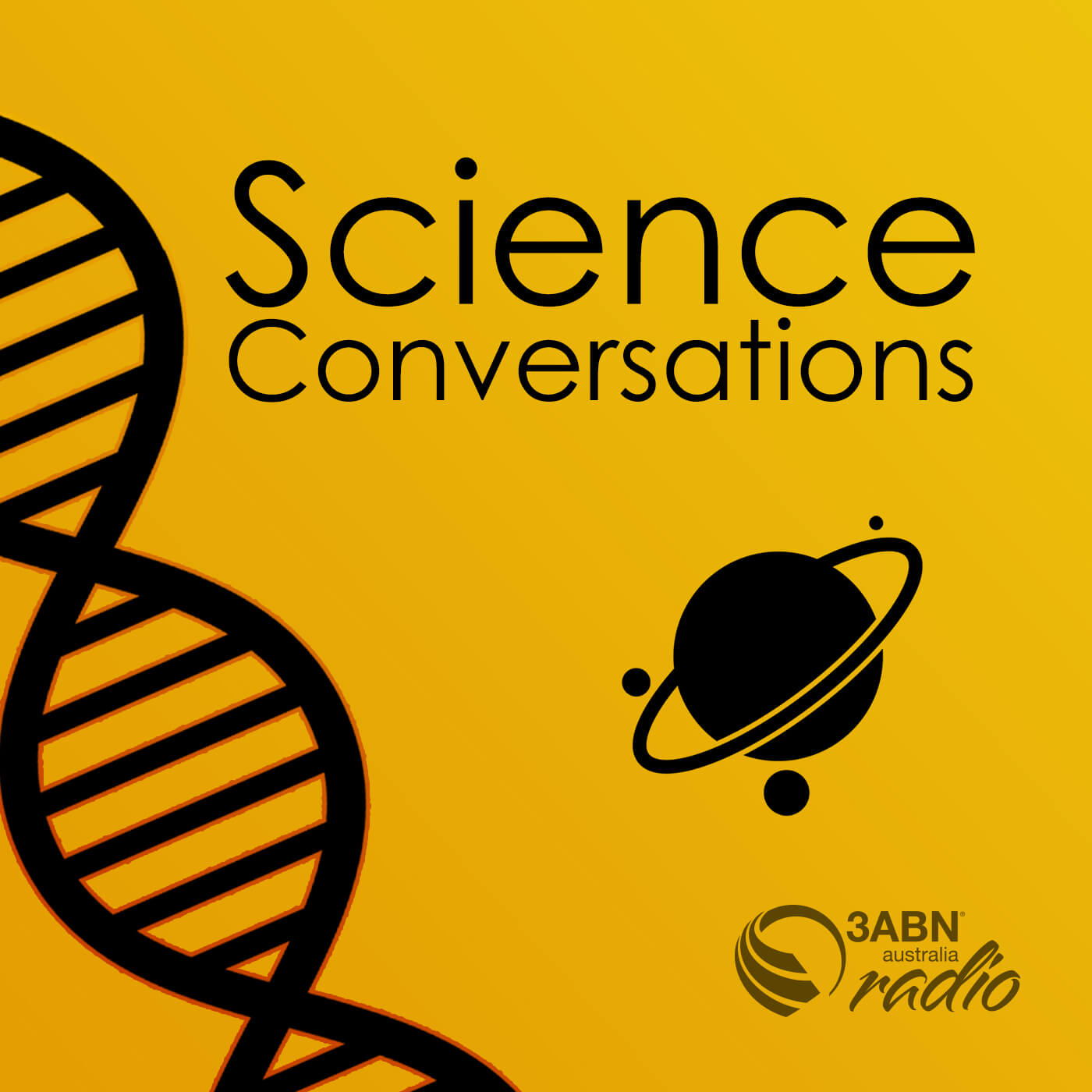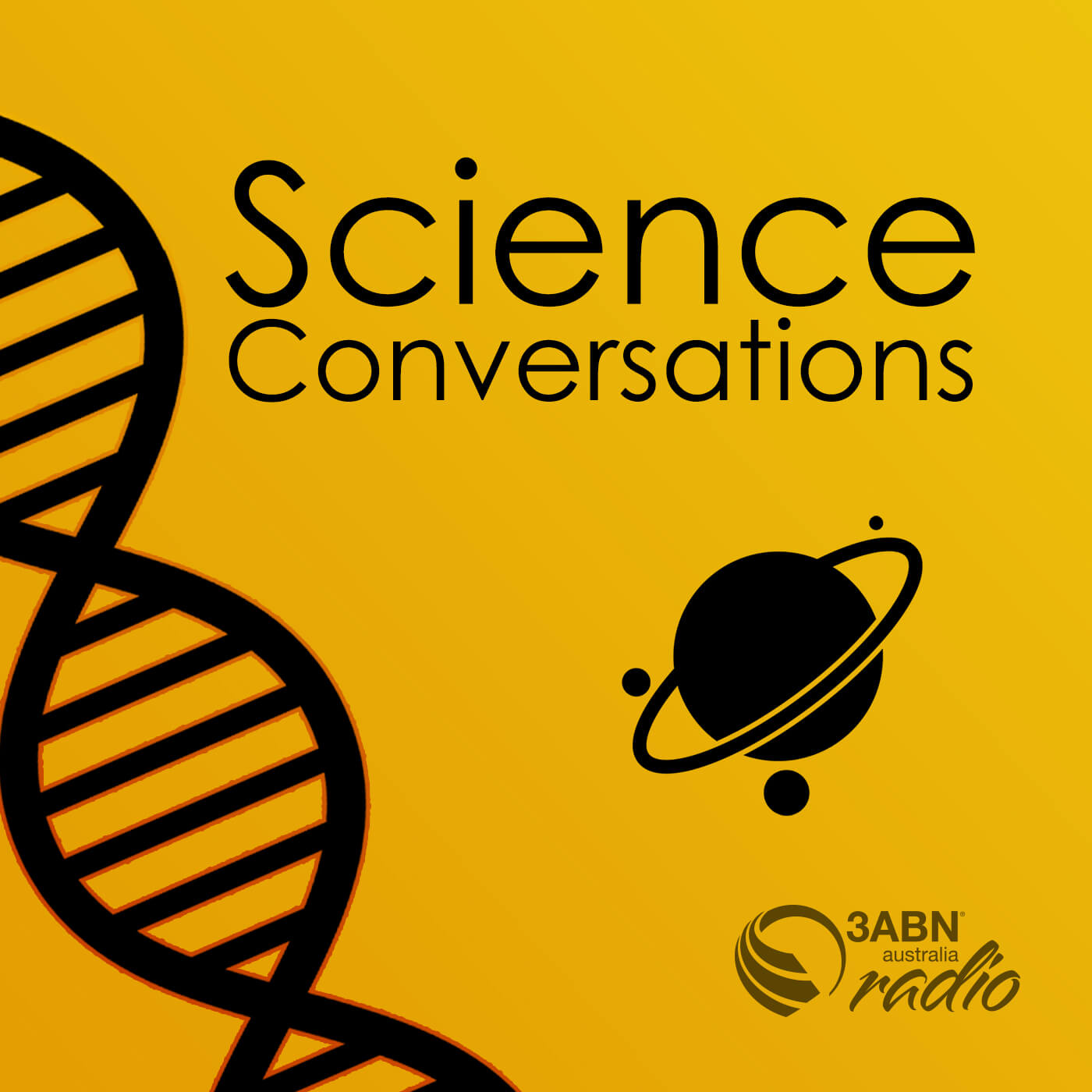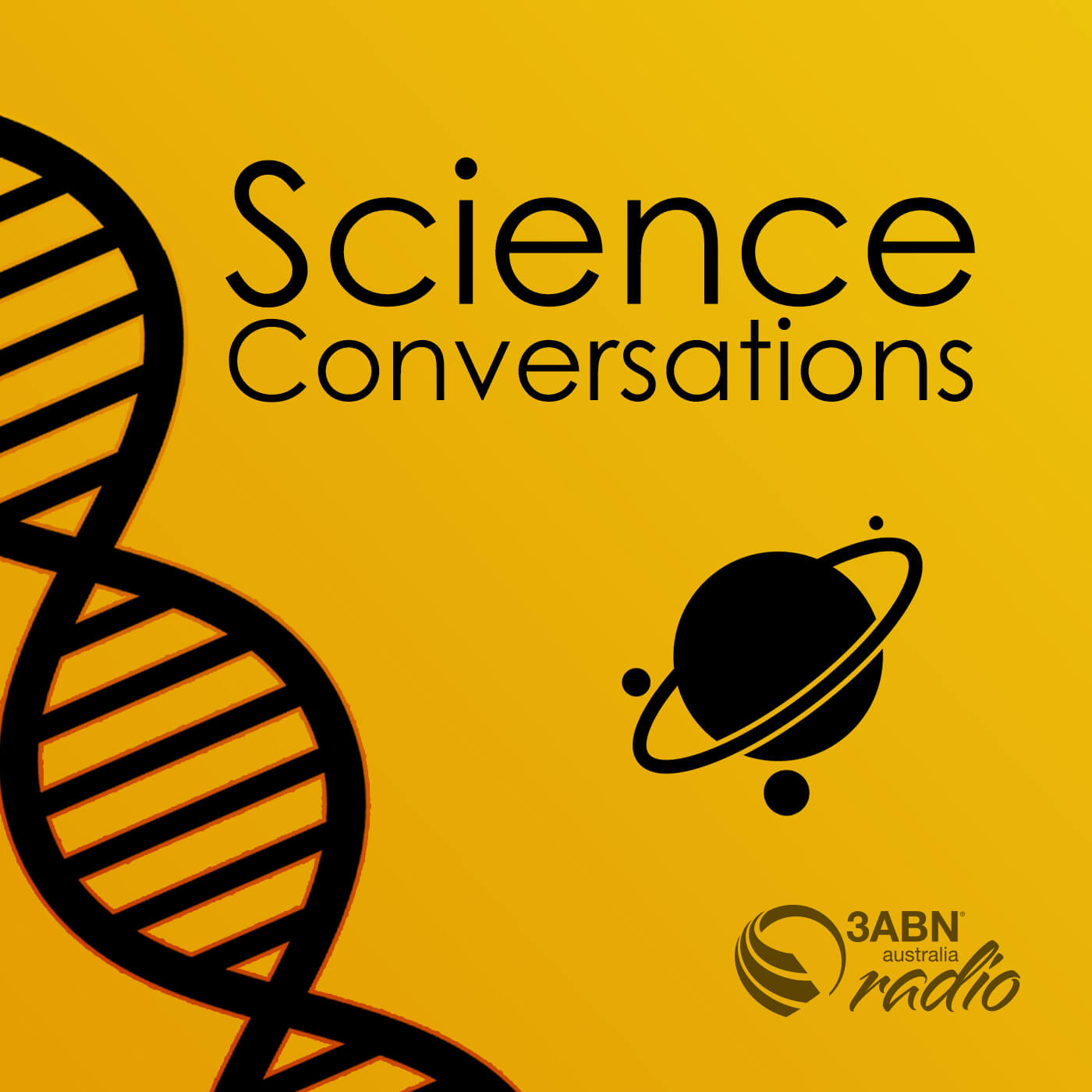Episode Transcript
SPEAKER 1
Welcome to Science Conversations. I'm Kaysie Vokurka. Is there any historical evidence for a worldwide flood? Joining me to discuss part two of this topic is Dr. John Ashton. Welcome to the program once again.
SPEAKER 2
Hello, Kaysie.
SPEAKER 1
Dr. John Ashton has written a book entitled Impossible 12 Reasons why Evolution Cannot Explain the Origin of Life on Earth. And we're looking at chapter eight in this program. Program. So assuming the flood did occur and the world was then repopulated by the survivors from the ark after the flood, what picture does the Bible record paint of the initial post flood period?
SPEAKER 2
Yes. Okay, so the Bible talks about how there were eight people saved on the flood. Noah's wife, who was very old. He was about 600 years old at the time. And we'll talk about those ages perhaps in the next part. But. And he had three sons and their wives. So there were three fertile couples on the, on the ark. And so Shem, Ham and Japheth were their names of the men. And so after the ark, these people are responsible then for, you know, populating the earth. And essentially they did that. They had families. And then of course, there was the building of the Tower of Babel sometime later. And again, people have begun they'd forgotten largely about the wickedness from before and began rebelling against God. The Bible account refers to. And so at that time, the Bible account says that God confused their language so that they. Then there were groups of people that could understand one another, but then they couldn't understand what other people were saying. And these groups then separated and moved away because of that region. Now, this is quite fascinating because study the origin of language and how language arose is quite a fascinating thing. And we can see groups of languages that have a lot of commonality, like the languages around Europe and so forth, with a lot of them, their Latin base and all this sort of thing from Roman times. So it does sort of fit. And the origin of language, again, is another thing that really doesn't have a satisfactory explanation in terms of some sort of evolutionary model. So that's one aspect. But one thing that people really don't realize is that in terms of chronologies and the histories of the different nations, they all corroborate the biblical account. So, for example, we know the Bible records Noah's sons, and then they record the children that those sons had their names, and then records often the great grandchildren's names as well. So Noah's great grandchildren to a couple of generations. So the Bible records these genealogies. How? The fascinating thing is that the names of these people are linked with the origin of the different nations. And this is really, really fascinating. And a lot of people don't realize it. So what Today we have this whole push to push back civilization tens of thousands of years, and people are vying, oh, ours is the oldest civilization. Oh, we developed this and this sort of thing. But when we look at the actual chronologies that were historically record in different nations, they all fit. The biblical dating of the scattering of the nations only occurring about 100 years after Babylon being built, about 100 years or so, Tower of Babel after the flood, and then the scattering of the nations about 100 years after that. So it all happens about in the period 2000, 2200 BC. And for many people, this is too short. But we need to understand that the dating methods used to achieve these much longer dates are very suspect and really haven't been validated properly for prehistorical dates. So this is one important thing to understand. The other thing is that we actually have written historical accounts, as I said, that corroborate this date of civilizations in particular areas only, starting from this period about 2000 to 2200 BC.
SPEAKER 1
And is this in archaeological records or how are these dates recorded?
SPEAKER 2
These are historical, written down by historians that people recorded the history at that time and also the naming of those particular things. So, for example, we have that Egypt is named after Noah's grandson. Now, a lot of people, it blows their mind, but Noah's son Ham had a son, Mizraim. And actually the old or the official Egyptian name for Egypt is Misra, after Mizraim. So, and the biblical account, the ancient accounts, referred to Egypt as the land of Ham. In other words, that Ham and his family moved away from Babylon. And the Mizraim was the first one to really set up and begin developing Egypt. And Egypt is just the Greek, the modern Greek translation of Mizraim, that's its name. And this is another thing that we need to bear in mind, that when names were translated, they didn't necessarily follow the phonetic equivalent because Mizoram is quite different to Egypt. But this is. You know, I have an old Encyclopedia Britannica. And the atlas, when you open it up, it's not named Egypt, it's named Misra.
SPEAKER 1
Is that right?
SPEAKER 2
Yeah. And so this is quite fascinating.
SPEAKER 1
Yeah.
SPEAKER 2
Now, when we go on to a number of other areas, like Canaan was another grandson, had a son, Sidon. So these are towns, all these different places. Now, another account, of course, is Japheth moved north and his. His descendants founded Cheap and founded Greece. And again Greek people who wrote the history of Greece, for example, again refer to Chapeptis or Yeptis. Yeah. As the person who founded Greece. And so here we find these towns are named after these particular people. Now one of the other things is there was a Egyptian historian, Manintho. Now manentho lived about 270 BC and he was a scholar in one of the in Helipitas which was their center of learning in Egypt at the time. And he wrote the history of Egypt and he refers to the flood. And again he talks about after the flood that Ham moved to Egypt and where it was founded by Mizram who is now called Egyptus. And so this is, you know, pre Christian influences, pre modern influences. This is an ancient pre Christian historian recording the history of Egypt.
SPEAKER 1
And I think he also, I think from it was written in your book that he also referenced the dispersion. That is the time when they all separated, which would have been the time when the languages were confused, when they had to move apart. Yeah, so that's also interesting.
SPEAKER 2
Yeah. So here we have an Egyptian, non Christian, non Jew recording this history here. And also some of the, you know, a later historian studying the time that Egypt was founded. So many hundred years, about 1300 years before Cambyses conquered Egypt. And again that corroborates the date. Just when you do the maths you get a date about 2,100 B.C. something like that. So here we have these different historians corroborating actual dates, actual years back from timeline dates, we know the date Cambyses conquered Egypt. This sort of thing, we can calculate it back. So this is really fascinating. But what I find fascinating is that you know, races today, like the Medes, the different Russian groups, these people all trace their origin back to the grandsons of Noah. They're named, you know, the Medes are named after one of the grandsons of Noah, Madai Magog, all these posted the, the Russian people which were known in biblical times as Scythians, I think they again were named after these grandsons, Canaan. And I already mentioned the land of Canaan. That again was one of Noah's grandsons and as I said, towns outside and are named after him. And one of the fascinating things of course is in China. So for example, Dr. Young who composed the concordance in the 1800s, he studied a lot of this history and looked at several accounts that Noah was believed to have moved to China as a patriarch.
SPEAKER 1
Noah.
SPEAKER 2
Noah, really? Yeah.
SPEAKER 1
Interesting.
SPEAKER 2
And that he was the first patriarch of China. Fu Xi. And it's interesting that the Chinese history has these eight pre flood patriarchs. I talk about the flood history as well in the Chinese accounts. And it's quite fascinating that Professor Goodrich, who was a professor of Eastern history and Eastern culture at Columbia University back in the 1920s, 1930s, around that period anyway, he did a lot of study of Chinese documents and so forth before a lot was destroyed and prior to the Communist takeover there. And again there were historical records. One of them was called the Bamboo Annals and there's quite a detailed account of this in his in the Encyclopedia Britannica, that this was a historical record that provided a chronology of the history of China right back to the founding sage of Fuxi. And it goes back, it dates the founding about 1900 BC and actually there's been a slight revision of that with some of the modern corrections, but it's only about makes it about 100 years older again. So around about 2000 BC was the date when China was founded, according to their actual historical records that were ancient chronologies that were preserved, that were written. I understand the Bamboo Annals were written before the time of Christ and a lot of their chronologies were destroyed because my understanding is that there was an emperor of China that lived about the same time as Christ that ordered that a whole lot of books be burned for whatever reason, I can't remember. But there are only a few documents survived. And the Bamboo Annals was one of the ones that did survive as a complete historical record going back. So. And people can read about this. It's in one of my older versions of the Encyclopedia Britannica under the History of China. And so what people don't realize is that we had these accounts that were accounts by different historians, like the founding of Greece. Again, Eusebus, I think, was historian that looked at that and dated it back to when it was founded by Iaptus, so many hundred years before the first Olympiad, which was about 770 BC, 760 BC somewhere around there. So again, when you count back, you get this founding of Greece again round about 2000 BC. So what we have is all these actual historical accounts written down by ancient people who wrote down dates or corroborate the biblical account of the dispersion after the flood and the founding of the nations after the flood. Another fascinating aspect that comes out is the ancient Chinese scripts which were pictograms. And so, you know, the word for. I can't remember exactly, but words like for flood and boat and family and this sort of thing, for example, depict, like a boat with eight people in it. And this sort of thing, they corroborate the flood story Exactly. In their ancient writing. So their words for flood and all these sort of things, and rainbow, these sort of things corroborate the actual biblical account in pictures. And this, again, was a very ancient writing system. So we have powerful historical records that corroborate the flood, plus the naming of so many areas and towns in Europe named after the actual people who were the descendants of Noah. And usually we don't name people after, you know, fictitious name. So you go to Disneyland after Walt Disney, not after Mickey Mouse Land, you know, and the same, you know, other. Other countries are named after, you know, the early founders of those countries.
SPEAKER 1
Yeah. It's considered something of honor, isn't it? Yeah, yeah.
SPEAKER 2
You want to name a place after yourself.
SPEAKER 1
Yeah. After its founder or something. Yeah. So that, that makes a lot of sense.
SPEAKER 2
That's powerful evidence for the biblical account, really.
SPEAKER 1
And just the consistency that's weighing in on that story and the historical dates. Very, very powerful, as you say. Thank you for sharing those. We've got more to talk about this topic. And so next time we'll continue to examine the question, is there any historical evidence for a worldwide flood? Be sure to join us.


